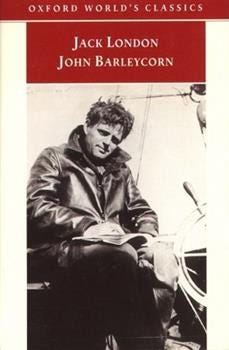In an encouraging Election Day, the best part was seeing John Fetterman of Pennsylvania elected to the U.S. Senate, not because he’s a Democrat but because he had a stroke in May and voters backed him anyway.
In a debate at the end of October, Fetterman used closed captioning to help understand questions and what his opponent, Mehmet Oz, was saying, because the stroke affected his auditory processing.
My auditory processing is none too good these days when I’m watching TV — especially British TV — and my kids suggested using the closed captioning, which they do so they catch every word.
Many of us know the difficulty of coping with a disability, permanent or temporary. While commentators predicted Fetterman’s halting debate performance would be a crippling blow to his campaign, voters empathized.
A disability is not a gift, but it puts things in perspective. For the past month, I have been struggling with pinched nerves in my back that send pulses of pain down my legs. I’ve started physical therapy, but progress has been slow, and I use a cane just to walk between rooms.
The other afternoon, worn down by pain, I exploded at our dog, shouting at him in a harsh voice when he misbehaved.
I wish I’d wake up tomorrow all better, but the experience is making me see how hard it is for the many people who live with chronic pain.
And it makes me appreciate the kindness of the community, and especially the family members without whose help I would be lost.
I used to brag about my health, but I’ve had three operations in the past two and a half years and am now crouching and shuffling from room to room, reaching out for support.
Many of us have been humbled by hardships. We need understanding and consideration. We need the loving kindness of other people.
Support is critical to recovery, and in that way, the hundreds of thousands of people who voted for John Fetterman are helping him to get better. They believe he can do the job, and that makes it more likely he will.
I expect he will be a rousing leader for Pennsylvania and an example for the country of a stroke survivor succeeding at the highest levels of public service.
“After having that stroke, I really understand much more the challenges that Americans have day in and day out,” he said in an interview.
The Pennsylvania election is a recognition by voters that human beings need each other’s help. Disabilities are not disqualifications; they are part of life, and life is hard.
Readings
I read “John Barleycorn,” Jack London’s memoir of his drinking life, and had a few problems with it. First is London’s constant bragging about his prowess, whether physical or mental or constitutional in reference to his apparently superhuman ability to hold his alcohol. His strong constitution, he says over and over, kept him on his feet when other men (women are not mentioned) would have passed out or died. Obviously, if the book is even generally true, London led an extraordinarily adventurous and fascinating life. And his writing style is wonderfully vigorous and exciting and poetic. But a little bit of humility would have added to the story’s charm.
Second, London sets out to show that his heavy drinking, which killed him at age 40, was not a compulsion but a choice he engaged in because of the company he kept. For most of his life, he was a social drinker, he says, and he didn’t even enjoy alcohol but drank for the convivial effect of sharing drinks with other men. This is hard to swallow when reading of the enormous amounts London consumed whenever he had the opportunity. Having a beer or two might qualify as good manners in London’s circles, but manners didn’t require him to outdrink everyone else every single time.
London was a hard-core alcoholic, as anchored to booze as any drunk ever has been, and his inability to admit that goes a long way toward explaining why booze killed him.
“John Barleycorn” is a fascinating look into the mixed-up head of a great artist. Too bad he couldn’t see what will be clear to anyone who reads this book — alcohol was not the key to excitement and adventure he makes it out to be; it was an ever-growing weight he bore through the years, while producing great work not because of the boozing but despite it.






Will, If I may call you that, you made total good sense and as you pointed out, unfortunately quite often one has to realize some things after going through some very distressing problems, in this case, health problems. I myself now use a walker to go everywhere - years ago I used running as a source of exercise and even ran races & loved it but I am now 87 and thank God every day the advances they have made in walkers now w/wheels & all so I am tickled pink to go down our hallways here at the Cedars on Bay Road walking right along at a good gate. I will remember you in my prayers & I wish you the very best of luck. PS I have been a avid reader of your columns over the years.
I can identify with this. We had a car accident last year that left me with fractures in my back. Not that long after I was released, I was back in the hospital when I developed a blood infection. I cannot recall the term for that right now. The accident left me using a cane, sometimes a walker. My brain still works. Go John Fetterman!